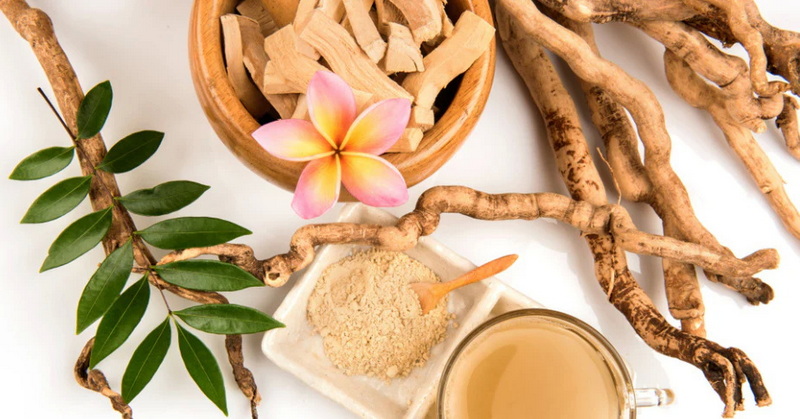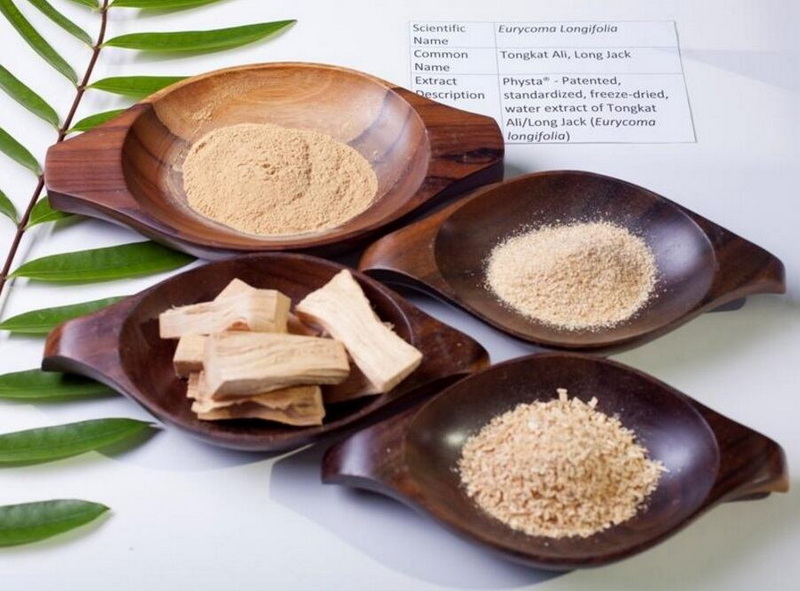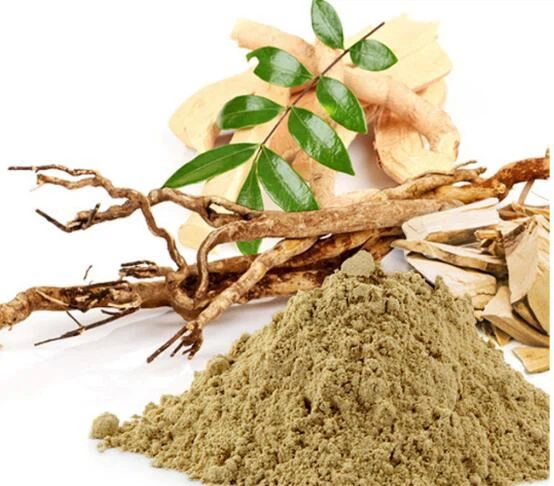Content Menu
● Understanding OEM Tongkat Ali Extracts
● Key Quality Control Measures in OEM Tongkat Ali Production
>> 1. Raw Material Sourcing and Authentication
>> 2. Standardized Extraction Processes
>> 3. In-Process Quality Control
>> 4. Finished Product Testing
>> 5. Packaging and Storage
● Advanced Analytical Techniques for Quality Assurance
● Supplier Qualification and Audits
● Employee Training and Quality Culture
● Documentation and Traceability
● Environmental Controls
● Continuous Improvement and Innovation
● Conclusion
● Frequently Asked Questions (FAQs)
>> 1. What is OEM Tongkat Ali Extract, and how does it differ from regular Tongkat Ali products?
>> 2. How is the authenticity of Tongkat Ali roots verified in OEM production?
>> 3. What quality standards should OEM Tongkat Ali extracts comply with?
>> 4. How do manufacturers ensure the safety of Tongkat Ali extracts?
>> 5. Why is standardization important in OEM Tongkat Ali extract production?
Tongkat Ali, scientifically known as Eurycoma longifolia, is a highly valued herbal extract widely used in nutraceuticals for its reputed health benefits, especially in male vitality and overall wellness. As demand grows globally, Original Equipment Manufacturer (OEM) Tongkat Ali extracts must adhere to stringent quality control measures to ensure product safety, efficacy, and consistency. This article explores comprehensive strategies and best practices to ensure quality control in OEM Tongkat Ali production, highlighting key checkpoints from raw material sourcing to final product testing.

Understanding OEM Tongkat Ali Extracts
OEM Tongkat Ali extracts refer to Tongkat Ali products manufactured by one company and branded or sold by another. This model requires the OEM to maintain high standards of quality control to meet client specifications and regulatory requirements. The extract typically involves standardized bioactive compounds such as eurycomanone, eurypeptides, glycosaponins, and polysaccharides, which are critical markers of potency and efficacy.
Key Quality Control Measures in OEM Tongkat Ali Production
1. Raw Material Sourcing and Authentication
The foundation of quality OEM Tongkat Ali extracts lies in sourcing authentic and mature Tongkat Ali roots. The roots are primarily harvested from Malaysia's rainforests, often with the assistance of indigenous communities, ensuring sustainable and ethical sourcing practices.
- Botanical Authentication: Macroscopic and microscopic examinations confirm the identity of *Eurycoma longifolia* roots.
- Contaminant Screening: Raw materials undergo rigorous testing for heavy metals, pesticides, microbial contamination, and foreign matter to meet safety standards.
- Sampling Procedures: Representative sampling according to approved protocols ensures consistency in raw material quality.
2. Standardized Extraction Processes
The extraction process is pivotal in preserving the bioactive compounds that define Tongkat Ali's health benefits.
- Water-Based Extraction: Most OEM producers use hot water extraction followed by filtration, evaporation, and drying (freeze-drying or spray-drying), avoiding organic solvents to maintain safety and purity.
- Continuous-Flow Evaporation: Advanced methods like continuous-flow evaporation concentrate the extract efficiently while preserving key actives such as eurycomanone.
- Standardization: Extracts are standardized to contain specific percentages of bioactive markers, e.g., eurycomanone content between 0.8% to 1.5%, polysaccharides above 30%, protein above 20%, and glycosaponins above 40%, following Malaysian Standard MS2409.
3. In-Process Quality Control
During production, intermediate quality checks are essential to monitor:
- Purity Tests: Including ash content, loss on drying, and extractive values.
- Microbial Limits: Ensuring low microbial load to prevent contamination.
- Assay Tests: Using High-Performance Liquid Chromatography (HPLC) to quantify active ingredients accurately.
- Impurity Analysis: Detecting residual solvents, related substances, and degradation products.
4. Finished Product Testing
Before release, the final Tongkat Ali extract must pass comprehensive testing:
- Physical and Chemical Analysis: Confirming appearance, particle size, moisture content, and chemical profile.
- Safety Tests: Heavy metals, microbial pathogens, pesticide residues, and aflatoxins are tested to comply with international safety standards.
- Stability Studies: Real-time and accelerated stability tests ensure the product maintains potency and safety throughout its shelf life (typically 24 to 36 months).
- Certificate of Analysis (COA): A detailed COA accompanies each batch, documenting compliance with quality specifications.
5. Packaging and Storage
Proper packaging protects the extract from environmental factors that could degrade quality.
- Vacuum-Sealed Foil Packaging: Prevents moisture and oxygen exposure.
- Export-Grade Drums or Bottles: Durable containers for bulk or retail packaging.
- Storage Conditions: Cool, dry, and dark environments are maintained to preserve extract integrity.

Advanced Analytical Techniques for Quality Assurance
Modern OEM Tongkat Ali production employs sophisticated analytical tools:
- Nuclear Magnetic Resonance (NMR) and Gas Chromatography-Mass Spectrometry (GC-MS): Used for metabolite profiling and aroma fingerprinting to authenticate the extract and detect adulteration.
- Principal Component Analysis (PCA) and Orthogonal Partial Least Squares-Discriminant Analysis (OPLS-DA): Multivariate statistical methods to differentiate authentic extracts from commercial products.
- Third-Party Lab Testing: Independent verification by certified labs ensures unbiased quality assessment.
Supplier Qualification and Audits
A critical aspect of quality control is the qualification of raw material suppliers. OEM manufacturers conduct thorough audits and assessments of their suppliers to ensure compliance with quality, sustainability, and ethical standards. These audits include reviewing cultivation practices, harvesting methods, and post-harvest handling to minimize contamination risks and ensure traceability. Establishing long-term partnerships with trusted suppliers helps maintain consistent raw material quality and supports sustainability goals.
Employee Training and Quality Culture
Maintaining a strong quality culture within the manufacturing facility is essential. Regular training programs for employees on Good Manufacturing Practices (GMP), hygiene, and quality control procedures help reduce errors and improve product consistency. Empowering staff to identify and report quality issues fosters continuous improvement and accountability. A quality-first mindset embedded throughout the workforce ensures that every stage of production aligns with stringent quality standards.
Documentation and Traceability
Comprehensive documentation throughout the production process is vital for traceability and accountability. Batch records, testing reports, and supplier certificates are meticulously maintained to enable quick identification and resolution of any quality issues. This documentation supports regulatory compliance and facilitates customer audits. Traceability systems also allow tracking of raw materials from origin to finished product, ensuring transparency and enabling swift corrective actions if needed.
Environmental Controls
Strict environmental controls in production areas help prevent contamination and ensure product integrity. Controlled temperature, humidity, and air quality are monitored continuously. Cleanroom environments may be employed for critical processing steps to minimize microbial and particulate contamination. Regular sanitation and maintenance protocols further safeguard against cross-contamination and uphold hygienic conditions.
Continuous Improvement and Innovation
OEM Tongkat Ali manufacturers invest in research and development to improve extraction technologies, enhance bioactive compound yields, and develop novel formulations. Continuous improvement initiatives based on customer feedback and market trends help maintain competitive advantage and meet evolving regulatory requirements. Innovation also extends to sustainable practices, such as optimizing energy use and minimizing waste, aligning with global environmental standards.
Conclusion
Ensuring quality control in OEM Tongkat Ali production is a multi-faceted process involving strict raw material authentication, standardized extraction methods, in-process monitoring, and rigorous finished product testing. Adhering to recognized standards such as Malaysian Standard MS2409 and Good Manufacturing Practices (GMP) guarantees that OEM Tongkat Ali extracts deliver consistent potency, safety, and efficacy. Leveraging advanced analytical technologies, maintaining transparent documentation, and fostering a quality-driven culture further solidify product reliability, benefiting manufacturers, brands, and consumers alike.

Frequently Asked Questions (FAQs)
1. What is OEM Tongkat Ali Extract, and how does it differ from regular Tongkat Ali products?
OEM Tongkat Ali Extract is produced by a manufacturer who supplies the extract to other companies for branding and sale. The key difference lies in the manufacturing and quality control processes that OEM suppliers must follow to meet client specifications and regulatory standards, ensuring consistent quality and potency.
2. How is the authenticity of Tongkat Ali roots verified in OEM production?
Authenticity is verified through botanical identification methods such as macroscopic and microscopic examination, chemical fingerprinting using HPLC, and metabolite profiling via NMR and GC-MS to confirm the presence of key bioactive compounds unique to *Eurycoma longifolia*.
3. What quality standards should OEM Tongkat Ali extracts comply with?
OEM Tongkat Ali extracts should comply with Good Manufacturing Practice (GMP), Malaysian Standard MS2409 for Tongkat Ali, ISO 22000:2005, and Hazard Analysis and Critical Control Points (HACCP) principles. These standards cover raw material quality, extraction processes, contaminant limits, and product stability.
4. How do manufacturers ensure the safety of Tongkat Ali extracts?
Safety is ensured by testing for heavy metals, microbial contamination, pesticide residues, and aflatoxins. Manufacturers conduct in-process purity tests and finished product assays, supported by third-party laboratory certification to guarantee the absence of harmful substances.
5. Why is standardization important in OEM Tongkat Ali extract production?
Standardization ensures that each batch of Tongkat Ali extract contains consistent levels of bioactive compounds like eurycomanone, which directly affect the product's efficacy. This consistency is crucial for consumer trust, clinical research, and regulatory compliance.






























